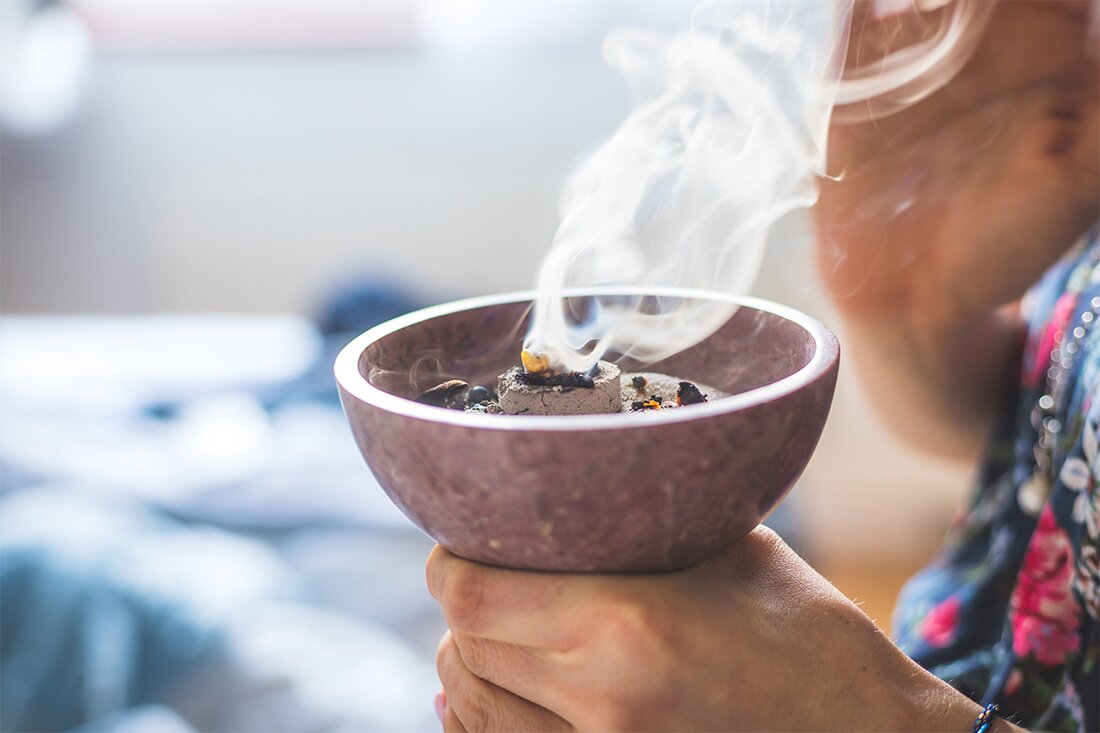Kallie Schut: What is cultural appropriation in yoga?
When I search for information about yoga—whether in print, on social media, or online—I am bombarded by images that fetishize Indian culture as a mystical, magical practice. Where I find depictions and writings of South Asians, they tend to exalt the patriarchal structures of self-proclaimed gurus who have financial interests in yoga paraphernalia, teacher training, and branding that are tied to their key audiences in the West, who tend to be primarily white, middle-class women. I am a woman of color of South Asian heritage, and the cultural appropriation of a wisdom tradition for its iconography or one that...

Kallie Schut: What is cultural appropriation in yoga?
When I search for information about yoga—whether in print, on social media, or online—I am bombarded by images that fetishize Indian culture as a mystical, magical practice.
Where I find depictions and writings of South Asians, they tend to exalt the patriarchal structures of self-proclaimed gurus who have financial interests in yoga paraphernalia, teacher training, and branding that are tied to their key audiences in the West, who tend to be primarily white, middle-class women.
I am a woman of color with South Asian heritage, and the cultural appropriation of a wisdom tradition for its iconography or one that is constrained by Eurocentric body ideals feels alienating to me - exacerbating feelings of disconnection and loss from my own sacred ancestral traditions and beliefs. Professor Scafidi's definition below shows how stripping or cherry-picking South Asian culture causes harm - particularly when those from the culture are excluded, marginalized or marginalized from yoga teaching and leadership and decision-making roles in shaping how yoga develops from a place of justice.
According to Susan Scafidi, a law professor at Fordham University and author ofWho owns culture? Appropriation and Authenticity in American Law, "Taking intellectual property, traditional knowledge, cultural expressions, or artifacts from another's culture without permission. This may include the unauthorized use of another culture's dance, clothing, music, language, folklore, cuisine, traditional medicine, religious symbols, etc. This is most likely harmful if the source community is a minority that has been oppressed or exploited in other ways or if the object of the Appropriation is particularly sensitive, e.g. B. sacred objects. “
Even the language of cultural appropriation does not convey the extent of the harm repeatedly inflicted on minoritized and racialized cultures and peoples. Cultural extraction and exploitation often occurs within a framework in which culture is consistently decontextualized, that is, separated from the rich pluralism of the informing faith and wisdom traditions from which it originates. It reinforces power dynamics, including the brutal legacy of colonialism and patterns of oppression based on the perpetuation of racial and cultural stereotypes and mythologies.
Why is cultural appropriation so harmful?

The reason cultural appropriation is so harmful is because it is a tug-of-war between power, identity, and historical recognition of harm and violence. It's about the heart of who I am and what I am, my cultural identity and connections to my ancestors, my land and my people. It seems harmless as it is often explained as embracing inclusion, diversity and appreciation of the rainbow of ethnic cultures. However, if we explore deeper and ask questions through a postcolonial lens, we can begin to identify the damage.
Here are 4 questions for your self-inquiry that support the decolonization of yoga and anti-racist approaches
Is the source culture and/or heritage of that culture different, stereotyped, or stigmatized in any way? Are they perceived as “less than” by Western societal norms? As a group, do they have less political, cultural and economic influence and power?
Was the practice or tradition marketed and exploited for financial or status gain – with the most aesthetically pleasing and accessible parts divided, packaged and sold as a “gift to humanity”?
How much intercultural stress, conflict and communication is there between the generation of South Asian descendants and those of European heritage who practice and teach yoga today? Are the interactions rooted in justice, empathy and respect and is the relationship itself an echo or subversion of power dynamics?
What is the depth of understanding of cultural meaning and context – i.e., historical oppression and subjugation, codes of conduct, cultural and ethical values, and spiritual philosophy? Is there evidence of widespread mixing, mixing and dilution of cultures by the West? It is likely that your reflections will lead to the realization that there is a reality of inequality in modern yoga.
How to create and sustain positive social change
Here are my 4 pillars:
1) Heal and connect with your own ancestral and cultural roots, where they are known and unknown, and heal your relationship with the wisdom of the Earth
2) Build inner knowledge through a strong personal yoga practice, learning from a range of sources of wisdom, particularly those of South Asian writers and teachers
3) Connect with the heart and roots of yoga by developing relationships across lineages, especially with source culture descendants through compassionate listening and openness
4) Assume ethical values based on justice and justice through which you address the impact of your words and silence, your actions and inactions
Steps to Build Your Yoga Practice: Radical Darshans YTT Training
1)Jointhe Radical Yogi Book Club for challenging reads and tough conversations
2)Registerto my 10-hour introductory courses on Decolonizing Yoga and Philosophy, which help provide a foretaste or foundation for the 300-hour training
3) Follow me and the co-founders on our social media platforms
website Instagram Facebook Youtube
Take part in a varied and comprehensive yoga teacher training: Radical Darshan
Would you like to make your yoga practice or teacher more diverse and inclusive? Sign up for theRadical darshan300 hours YTT.Apply nowto book your place.
Written by Yogamatters

 Suche
Suche
 Mein Konto
Mein Konto
